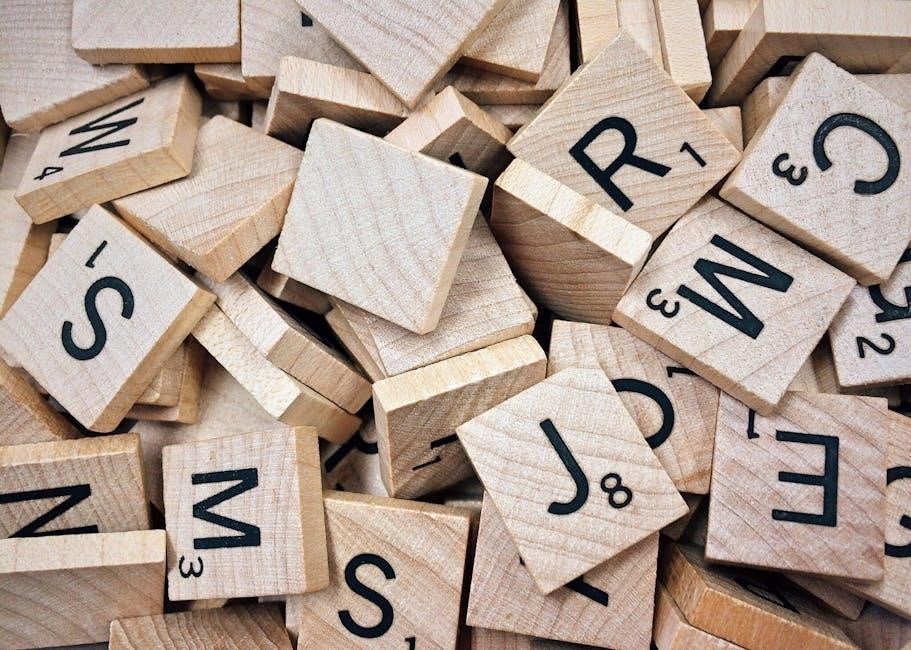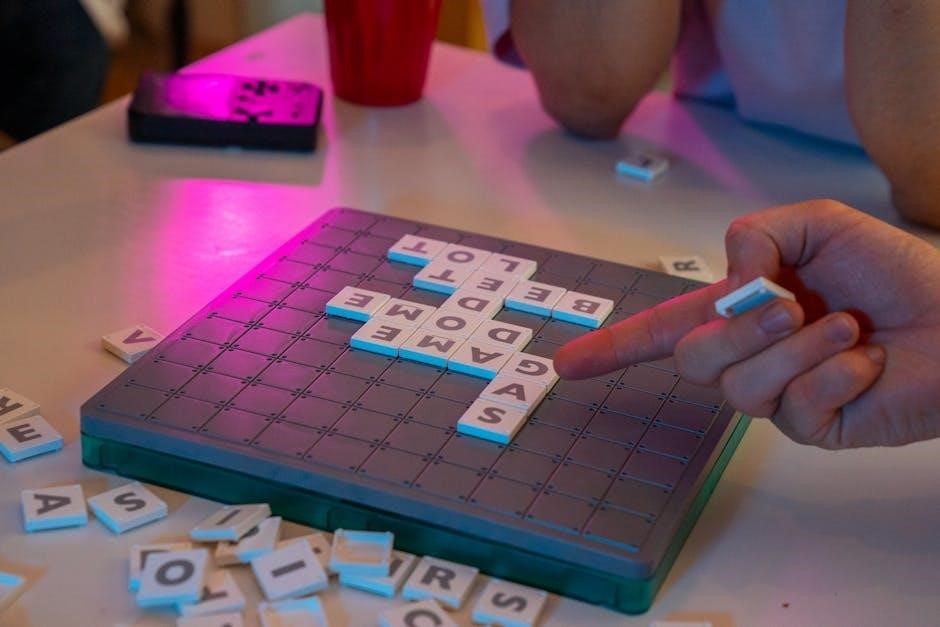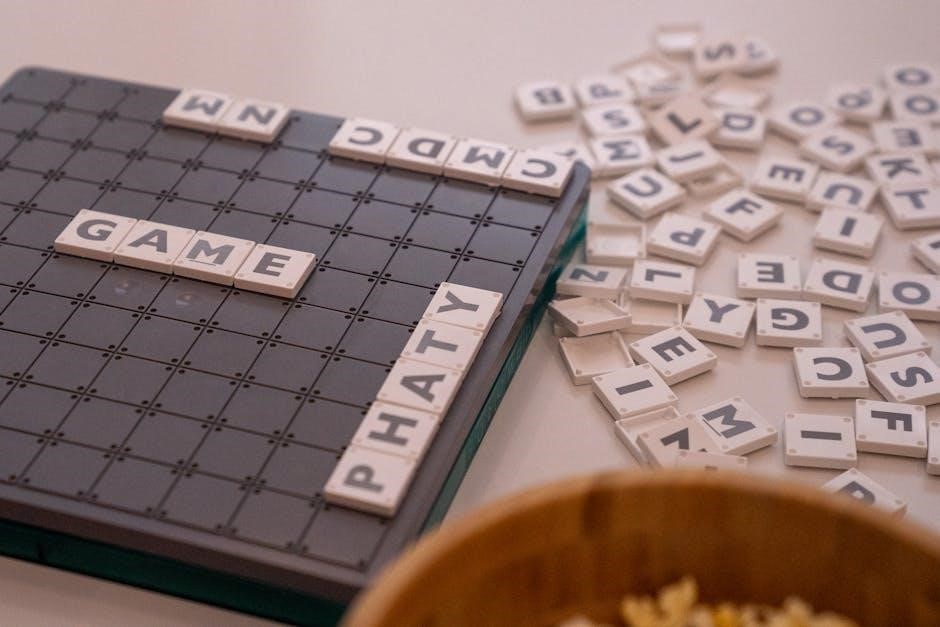Mastering Year 7 spelling words is essential for building strong literacy skills. A Year 7 Spelling Words PDF provides a structured approach to learning, featuring common misspelled words, tricky patterns, and engaging activities to reinforce spelling mastery.
Why Spelling is Important in Year 7
Spelling is a foundational skill that enhances communication and academic success. In Year 7, mastering spelling supports improved writing, reading comprehension, and overall literacy. Accurate spelling boosts confidence and reduces errors in assignments. It also strengthens grammar and vocabulary understanding. A Year 7 Spelling Words PDF provides structured lists and exercises, helping students identify and practice challenging words. Regular practice with these resources fosters independence and fluency, preparing students for higher-level subjects. By prioritizing spelling, students develop strong linguistic skills that benefit them across all areas of learning. Effective spelling is key to clear expression and achieving academic goals.
How to Use a Year 7 Spelling Words PDF Effectively
To maximize the benefits of a Year 7 Spelling Words PDF, start by printing or saving the document for easy access. Encourage daily practice by writing words by hand, as this reinforces memory retention. Use mnemonics or memory aids for challenging words, and highlight common spelling patterns. Test yourself weekly by covering the words and writing them from memory. Review missed words regularly to address gaps. Incorporate games or interactive activities to make learning engaging. Track progress by marking mastered words, ensuring consistent improvement. By following these steps, students can efficiently use the PDF to build confident spelling skills and achieve long-term success.

Comprehensive List of Year 7 Spelling Words
A Year 7 Spelling Words PDF includes essential vocabulary like abandon, abbreviation, absence, absolutely, bizarre, bouquet, culprit, culminate, and more. Regular practice ensures mastery.
Commonly Misspelled Words in Year 7
Year 7 students often struggle with words like abandon, abbreviate, and accommodate. The PDF highlights these tricky spellings, offering tips to remember them. Regular practice helps.
Tricky Spelling Patterns to Master
Year 7 students often find spelling patterns like ie vs ei challenging. Words such as neighbor and ceiling require attention. Silent letters in words like island and gnostic can be confusing. Additionally, patterns like ough in bought and through are tricky. The Year 7 Spelling Words PDF emphasizes these patterns, offering exercises to practice them. Mastery of these patterns improves overall spelling accuracy and confidence. Regular practice and mnemonics can help students overcome these challenges effectively.
Strategies for Learning Spelling Words
Effective strategies include writing words by hand, using mnemonics, and practicing regularly. These methods help reinforce memory and improve retention of spelling words effectively over time.
Writing Words by Hand: The Power of Kinesthetic Learning
Writing spelling words by hand is a powerful strategy that engages the brain’s kinesthetic memory, making it easier to retain new spellings. Research shows that physically writing words strengthens memory pathways, leading to better long-term retention. This method is particularly effective for visual and tactile learners, as it combines sight and touch. By consistently practicing with a pen and paper, students can develop muscle memory, reducing spelling errors. Additionally, writing words by hand slows down the learning process, allowing students to focus on each letter’s formation and sequence. This deliberate practice is proven to enhance literacy skills and build confidence in spelling abilities over time.
Using Mnemonics and Memory Aids for Difficult Words
Mnemonics and memory aids are invaluable tools for mastering challenging spelling words. Techniques like creating acronyms, rhymes, or visual associations can help students remember complex spellings. For example, breaking down words into syllables or using mind maps can simplify learning. Visual mnemonics, such as drawing images that represent parts of a word, engage the brain’s visual memory, making retention easier. These strategies not only enhance spelling accuracy but also make the learning process more engaging and interactive. By incorporating mnemonics, students can tackle difficult words with confidence and develop a more robust understanding of spelling patterns. This method is particularly effective for Year 7 learners aiming to build a strong foundation in literacy.

Assessment and Progress Tracking
Regular assessments and progress tracking are crucial for identifying strengths and areas needing improvement. Use quizzes, tests, and reviews to monitor mastery and adjust learning strategies accordingly.
How to Create a Spelling Test from a PDF
To create a spelling test from a Year 7 Spelling Words PDF, start by selecting a range of words that align with the curriculum or specific learning goals. Divide the words into sections based on difficulty or spelling patterns. Use a word processor to format the test, ensuring clarity and readability. Include an answer key at the end for easy grading. You can also add interactive elements, such as writing sentences using the words or matching games. Print the test or share it digitally, depending on the classroom setup. This method ensures a structured and effective way to assess spelling skills.

Monitoring Progress and Identifying Gaps
Regularly assessing spelling skills is crucial to monitor progress and identify gaps. Start by administering short, focused tests using words from the Year 7 Spelling Words PDF. Track correct and incorrect spellings to pinpoint areas needing improvement. Analyze patterns in errors to understand common challenges, such as tricky patterns or frequently misspelled words. Provide targeted practice exercises based on these gaps. Use digital tools or spreadsheets to record progress over time, allowing for clear visualization of improvement. Offer constructive feedback and celebrate milestones to motivate learners. This systematic approach ensures that no student falls behind and that all gaps are addressed effectively.

Engaging Activities for Spelling Practice
Engage students with fun activities like spelling bees, crossword puzzles, and bingo. Use interactive games and apps to make learning enjoyable. Incorporate competitions and rewards to motivate practice.
Games and Interactive Exercises to Reinforce Learning
Engage students with interactive games like crossword puzzles, word searches, and spelling bingo using Year 7 spelling words. Online platforms offer digital exercises that make learning fun. Teachers can create scavenger hunts where students find and spell words in their environment. Pairing games with mnemonics or memory aids helps reinforce tricky spellings. Interactive whiteboard activities and group competitions foster collaboration and healthy competition. These methods not only make learning enjoyable but also ensure long-term retention of spelling skills. Encourage students to use apps and websites that provide interactive spelling exercises tailored to their level. Make spelling practice a dynamic and engaging experience.
Incorporating Spelling into Daily Routine
Incorporate spelling practice into daily routines to make learning consistent and effective. Dedicate 10-15 minutes each day for activities like writing words by hand or using flashcards. Create a spelling journal where students can track their progress and review challenging words. Encourage reading aloud to apply spelling skills in context. Parents can support by setting aside time each evening for practice. Making spelling a part of daily life ensures steady improvement and builds confidence in using new words. Consistency is key to mastering Year 7 spelling words and developing lifelong literacy skills. Make it a habit to reinforce learning every day.

Technology and Tools for Spelling Improvement
Leverage technology with AI-based grammar and spelling checkers for instant feedback. Utilize online educational apps and interactive platforms for engaging Year 7 spelling practice.
Using AI-Based Grammar and Spelling Checkers
AI-based grammar and spelling checkers are powerful tools for improving spelling accuracy. These tools provide instant feedback, highlighting errors and suggesting corrections. They also offer style suggestions and readability scores, helping students refine their writing. For Year 7 spelling words, AI tools can break down complex words, making them easier to understand and remember. Many checkers support multiple languages, including English, Spanish, French, and Portuguese, catering to diverse learning needs. By incorporating AI-based tools into daily practice, students can enhance their spelling skills efficiently and effectively. These resources are accessible online, making spelling practice convenient and engaging for Year 7 learners.
Online Resources for Year 7 Spelling Practice
Online resources offer a wealth of interactive and engaging tools for Year 7 spelling practice. Websites provide downloadable PDFs, interactive games, and exercises tailored to specific spelling patterns. Many platforms feature AI-based checkers that offer instant feedback and corrections. Tools like Read Naturally and spelling games cater to diverse learning styles, making practice enjoyable. These resources often include progress tracking, allowing students to monitor their improvement. Parents and teachers can also access guides to support learning at home. By leveraging online resources, Year 7 students can enhance their spelling skills in a fun and effective manner, ensuring long-term mastery of essential words.

The Role of Parents in Spelling Development
Parents play a crucial role in supporting Year 7 spelling development. By encouraging daily practice and using PDF resources, they help reinforce learning and build confidence at home.
How Parents Can Support Spelling Learning at Home
Parents can effectively support Year 7 spelling learning by creating a structured study environment. Encourage daily practice using a spelling PDF, focusing on repetition and correct techniques. Utilize interactive methods like writing words on flashcards or incorporating games to make learning engaging. Provide positive feedback and celebrate progress to boost confidence. Creating a routine where spelling is part of daily activities ensures consistent improvement. Additionally, integrating technology, such as AI-based tools, can offer personalized practice and immediate feedback, helping reinforce spelling skills effectively. Regular communication with teachers can also provide tailored strategies for home learning, fostering a collaborative approach to education.
Communicating with Teachers for Shared Success
Effective communication between parents and teachers is crucial for a student’s spelling success. Regular updates on progress help align home and classroom strategies, ensuring consistency. Parents should actively participate in parent-teacher meetings to discuss specific challenges and strengths. Teachers can provide personalized recommendations and resources, such as tailored spelling lists or activities, to support learning at home. Sharing insights into a child’s learning style and preferences allows teachers to adapt their methods, creating a cohesive learning environment. Open dialogue ensures that both parents and educators work collaboratively, maximizing the effectiveness of spelling practice and fostering academic growth. This partnership is key to achieving long-term educational goals.
Mastering Year 7 spelling words builds a strong foundation for lifelong communication skills. Consistent practice and the use of resources like a Year 7 Spelling Words PDF ensure success.
Long-Term Benefits of Mastering Year 7 Spelling Words
Mastering Year 7 spelling words fosters strong communication skills, enhancing academic and professional success. It builds confidence in writing and speaking, promoting self-expression. Spelling proficiency also improves critical thinking and language appreciation. By using resources like a Year 7 Spelling Words PDF, students gain a structured approach to learning, ensuring long-term retention. These skills extend beyond school, benefiting future careers and personal growth. Effective spelling is a cornerstone of literacy, empowering individuals to articulate ideas clearly and creatively. Over time, it reduces errors and strengthens overall language proficiency, making it an invaluable skill for life. Consistent practice with a PDF ensures lasting benefits.

Leave a Reply